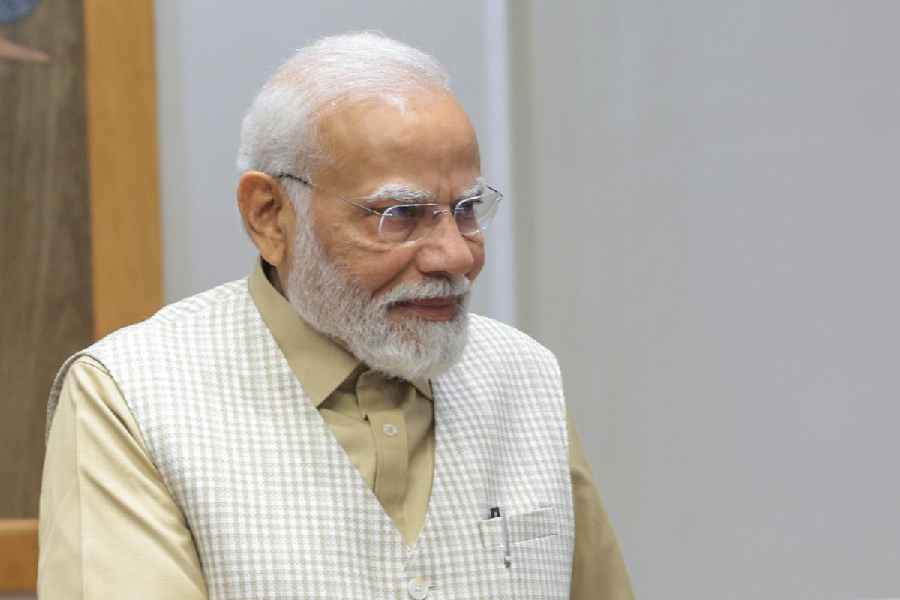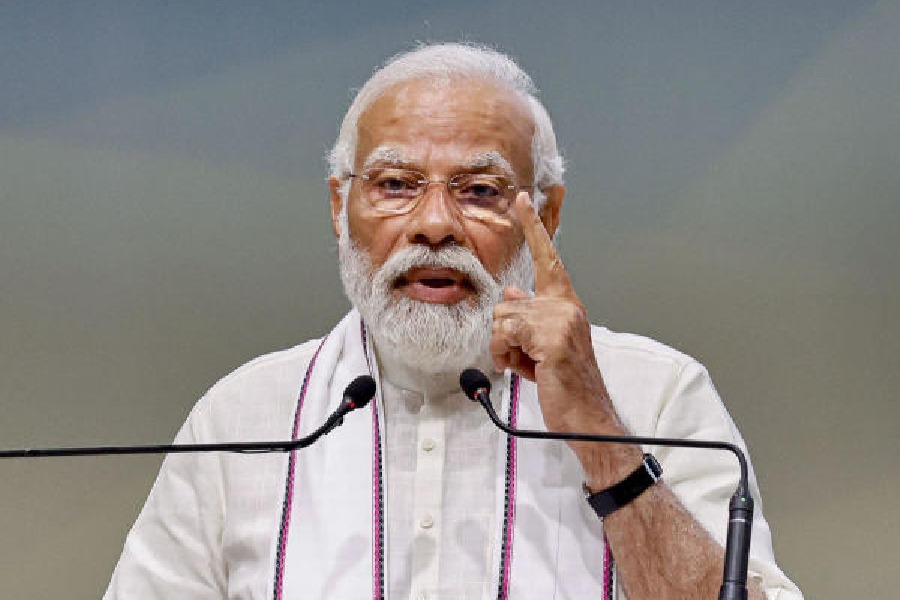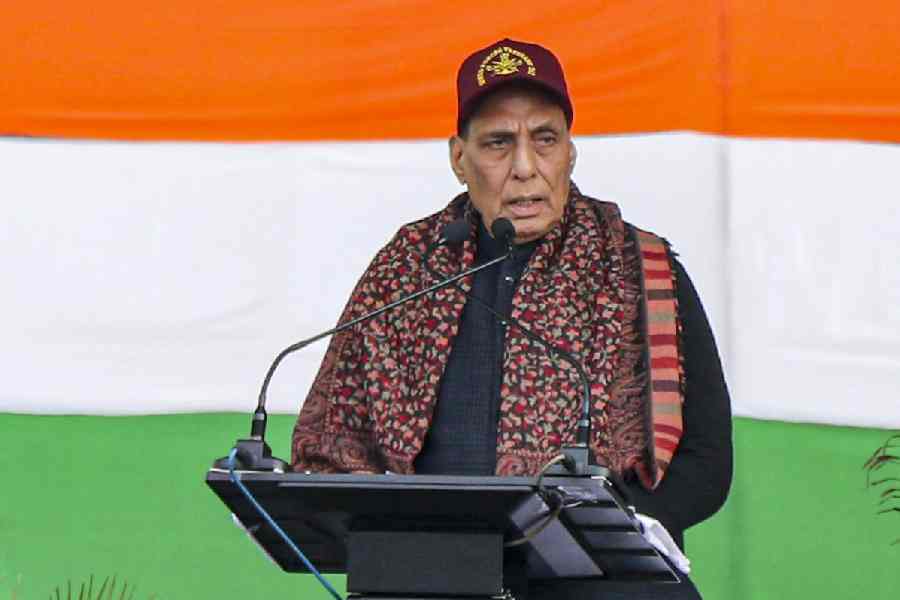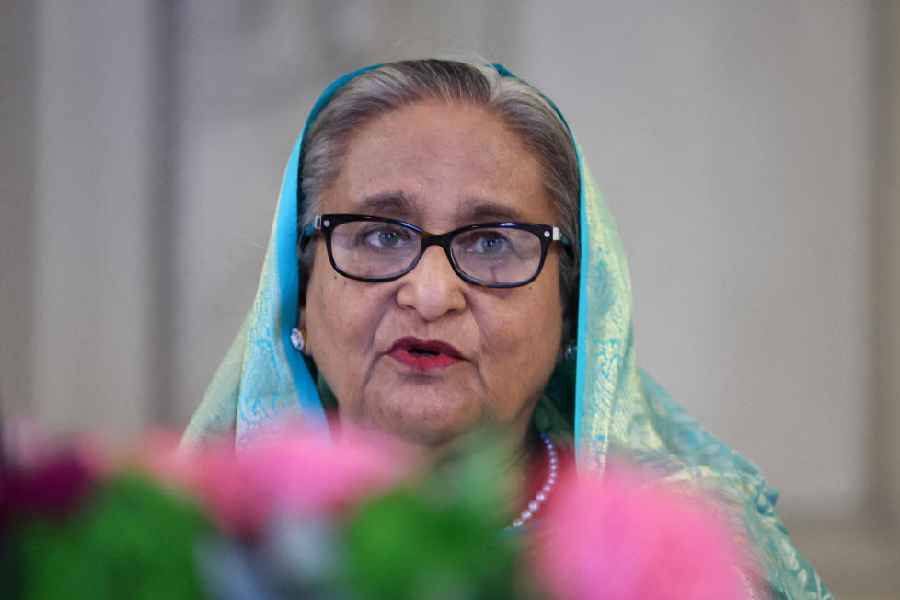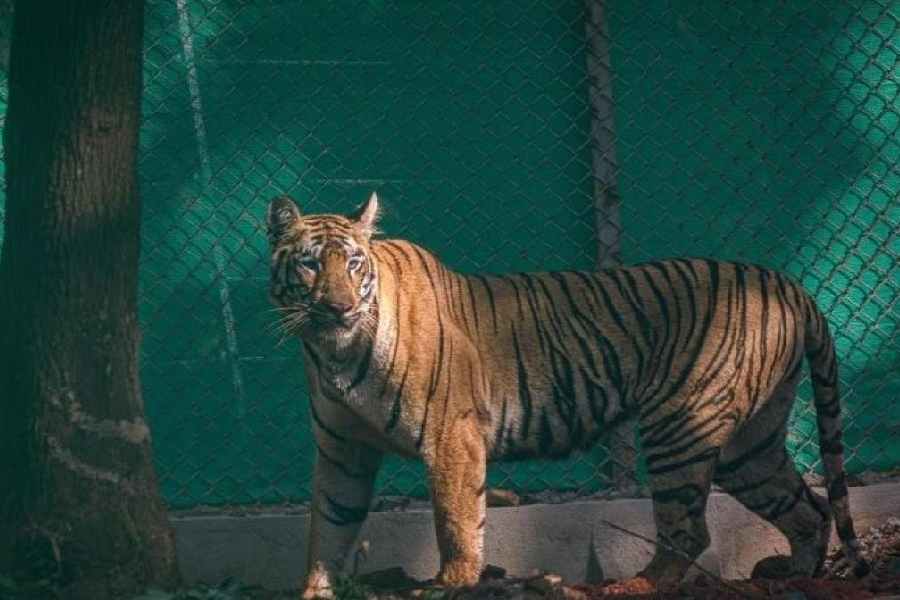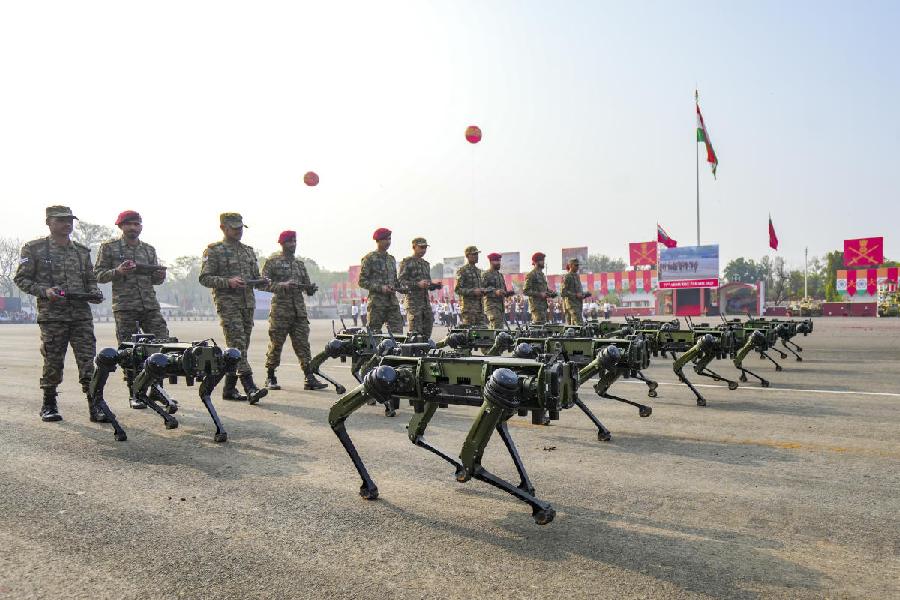Prime Minister Narendra Modi has said that India’s economic growth is a “natural by-product” of his nine-year-old government’s political stability, as he expressed optimism that it will be a developed nation by 2047 with "corruption, casteism and communalism" having no place in our national life.
In an exclusive interview with the Editor-in-Chief Vijay Joshi and senior editors of PTI late last week at his Lok Kalyan Marg residence, the Prime Minister also stressed on the need for timely and clear communication of policy stance by central banks, and policy actions by each country in their fight against inflation so that it can prevent negative repercussions on others countries.
On theme of India's G20 presidency, "Vasudhaiva Kutumbakam – One Earth, One Family, One Future", Modi noted that it wasn't just a slogan but "a comprehensive philosophy that is derived from our cultural ethos".
Here are some important points from PM Modi’s interview. Most of these are quotes. Some are paraphrased/summarised.
Impact of the Indian G20 Presidency
● Over 1 lakh delegates will have visited India going to different regions, and witnessing our demography, democracy and diversity. They are also seeing how a fourth D, development, has been empowering the people over the last decade.
● The shift to a human-centric approach has begun globally and we are playing the role of a catalyst.
● India’s G20 Presidency has also sowed the seeds of confidence in the countries of the so-called ‘Third World’.
Challenges facing the G20 and warm words for next G20 President Brazil
● Like a new world order was seen after World War 2, a new world order is taking shape post-COVID. The parameters of influence and impact are changing and this needs to be recognized.
● The ‘Sabka Saath Sabka Vikas’ model that has shown the way in India can also be a guiding principle for the welfare of the world. Irrespective of the size of the GDP, every voice matters.
● It would not be right for me to give any country any advice on what to do during their G20 Presidency. I respect my friend President Lula's abilities and vision and wish him and the people of Brazil great success.
On India’s proposal to make Africa Union a permanent member of G-20
● Theme of our G20 Presidency - ‘Vasudhaiva Kutumbakam – One Earth, One Family, One Future’. It is not just a slogan but a comprehensive philosophy that is derived from our cultural ethos.
● This is the approach that guides us even at the global level. We work for the inclusion of those who feel their voices are not being heard.
● Every country’s voice matters, no matter the size, economy or region.
● We are inspired by the humane vision and ideals of Mahatma Gandhi, Dr. Martin Luther King Jr., Nelson Mandela, and Kwame Nkrumah.
● Have taken many steps to make India and Africa relationship more stronger such as India-Africa Forum Summit in 2015, first-ever Summit of the African Development Bank outside Africa happening in India, etc
On spreading G-20 meetings across India, belief in the people and spirit of cooperative federalism
● We have observed many instances in the past where some countries, even if small in size, took up the responsibility of organising high-profile global meets, including ones like the Olympics. These mega congregations had a positive and transformational impact.
● Unfortunately, in the past, there used to be an attitude of getting things done in Delhi, in and around Vigyan Bhavan.
● I have great belief in the abilities of our people. I come from an organizational background and I had the privilege of witnessing first-hand the feats common citizens were capable of when given a platform and an opportunity.
● If you observe carefully, over the years, we trusted the people of every region. There are many examples such as 8th BRICS Summit in Goa, the 2nd FIPIC summit in Jaipur, Global Entrepreneurship Summit in Hyderabad, etc.
● By the time our G20 Presidency term ends, over 220 meetings would have happened across 60 cities in all 28 states and 8 union territories.
● We are not only conducting meetings across all states but each state is also ensuring they leave their unique cultural stamp on the minds of the delegates. This is also giving the world an idea of India’s incredible diversity.
● There is a deeper plan behind the decentralisation of the activities related to G20. We are investing in capacity building in our people, our institutions and our cities.
On India hosting G-20 meetings in Kashmir and Arunachal Pradesh, despite objections by Pakistan and China
● Such a question would be valid if we had refrained from conducting meetings in those venues.
● Ours is such a vast, beautiful and diverse nation. When G20 meetings are happening, isn’t it natural that meetings will be held in every part of our country?
On India being the bright spot in terms of the global economy
● People have given a decisive mandate, which has led to a stable government, predictable policies and clarity in the overall direction.
● This stability is the reason that over the past nine years, several reforms were brought in and growth is a natural by-product.
● For a long time, India was perceived as a nation of over 1 billion hungry stomachs. But now, India is being seen as a nation of over 1 billion aspirational minds, more than 2 billion skilled hands, and hundreds of millions of young people.
On the debt crisis and restructuring in countries of the Global South
● Countries that are going through debt crisis or have gone through it, have begun to give greater importance to financial discipline.
● Others who have seen some countries facing tough times due to the debt crisis are conscious of avoiding the same missteps.
● You are well aware that I have urged our state governments to be conscious about financial discipline as well. I have said that financially irresponsible policies and populism may give political results in the short term but will extract a great social and economic price in the long term.
● Those who suffer the consequences of the culture of financial irresponsibility the most are the poorest and the most vulnerable.
On democratisation of technology
● When it comes to the democratization of technology, India has global credibility.
● The world’s largest vaccine drive was also the most inclusive. We provided over 200 crore doses free. It was based on a tech platform COWIN. Further, this platform was even made open source so that other countries too could adopt and benefit.
● Our Digital Public Infrastructure was an object of wonder for many people globally, especially the way it was used for public service delivery during the pandemic.
● ONDC is an initiative that is being welcomed by citizens and experts as an important evolution point in democratizing and creating a level playing field on digital platforms.
● Our approach towards leveraging technology is motivated by a spirit of inclusion, last-mile delivery, and leaving no one behind.
● At a time when technology used to be thought of as an agent of inequality and exclusion, we are making it an agent of equality and inclusion.
On bio-fuel alliance and how it will help import-dependent countries like India on energy security
● We have been making great progress in climate-centric initiatives within India such as ramping up solar energy capacity 20-fold in just a few years.
● We are perhaps the first among the G20 countries to have achieved our climate targets 9 years ahead of the scheduled date.
● We have also played a leading role in many global climate initiatives.like the International Solar Alliance and Coalition for Disaster Resilient Infrastructure, International Solar Alliance, Mission LiFE initiative etc
● Biofuel alliance is another step in this direction. Biofuels are also important from the perspective of a circular economy. Such alternatives can enhance energy security, create opportunities for domestic industry, and create green jobs
On how climate change targets will progress in the post-Ukraine war era
● Despite having 17% of the world’s population, India’s historic share in cumulative emissions has been less than 5%. Yet, we have left no stone unturned in meeting our climate goals.
● We are working with other nations to alter the approach from a restrictive to a constructive approach.
● Rather than focusing purely on the approach of don’t do this or that, we want to bring in an attitude that makes people and nations aware of what they can do and help them with that, in terms of finance, technology and other resources.
On cyber crimes
● There may be many domains in which global cooperation is desirable. But in the domain of cyber security, global cooperation is not only desirable but is inevitable. Because the threat dynamics are distributed.
On multilateral institutions and India’s role
● Institutions can retain relevance only when they change with the times. A mid-20th century approach cannot serve the world in the 21st century.
● As a diverse nation, the Mother of Democracy, the home to one of the world’s largest populations of youth, and the growth engine of the world, India has a lot to contribute to the shaping of the future of the world.
On India in the Amrit Kaal year of 2047
● Indians who are living in this era have a great chance to lay a foundation for growth that will be remembered for the next 1,000 years!
● By 2047, I am sure that our country will be among the developed countries. Our economy will be even more inclusive and innovative. Our poor people will comprehensively win the battle against poverty. Corruption, casteism and communalism will have no place in our national life.

